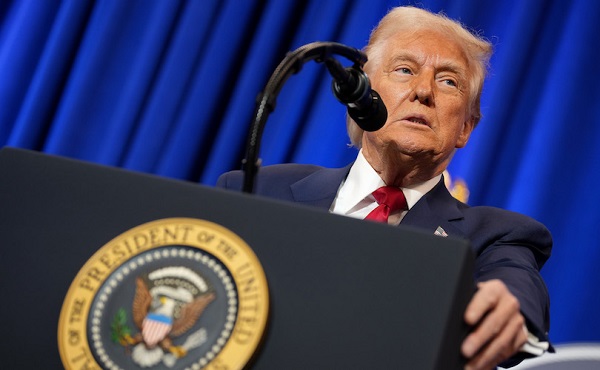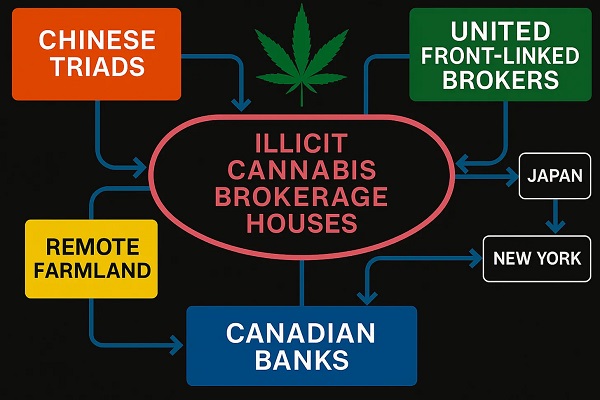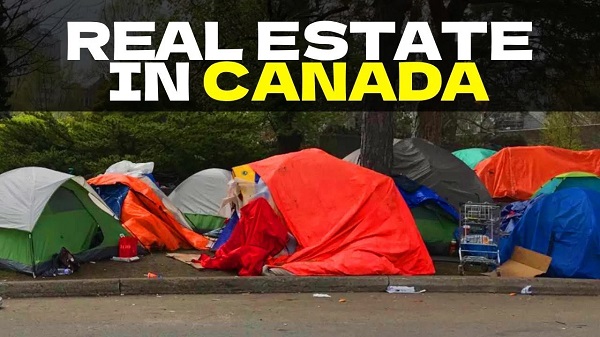Business
Trump’s bizarre 51st state comments and implied support for Carney were simply a ploy to blow up trilateral trade pact
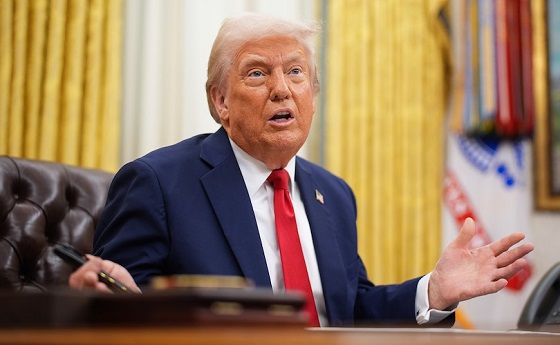
From LifeSiteNews
Trump’s position on the Canadian election outcome had nothing to do with geopolitical friendships and everything to do with America First economics.
Note from LifeSiteNews co-founder Steve Jalsevac: This article, disturbing as it is, appears to explain Trump’s bizarre threats to Canada and irrational support for Carney. We present it as a possible explanation for why Trump’s interference in the Canadian election seems to have played a large role in the Liberals’ exploitation of the Trump threat and their ultimate, unexpected success.
To understand President Trump’s position on Canada, you have to go back to the 2016 election and President Trump’s position on the North American Free Trade Agreement (NAFTA) renegotiation. If you did not follow the subsequent USMCA process, this might be the ah-ha moment you need to understand Trump’s strategy.
During the 2016 election President Trump repeatedly said he wanted to renegotiate NAFTA. Both Canada and Mexico were reluctant to open the trade agreement to revision, but ultimately President Trump had the authority and support from an election victory to do exactly that.
In order to understand the issue, you must remember President Trump, Commerce Secretary Wilbur Ross, and U.S. Trade Representative Robert Lighthizer each agreed that NAFTA was fraught with problems and was best addressed by scrapping it and creating two separate bilateral trade agreements. One between the U.S. and Mexico, and one between the U.S. and Canada.
In the decades that preceded the 2017 push to redo the trade pact, Canada had restructured their economy to: (1) align with progressive climate change; and (2) take advantage of the NAFTA loophole. The Canadian government did not want to reengage in a new trade agreement.
Canada has deindustrialized much of their manufacturing base to support the “environmental” aspirations of their progressive politicians. Instead, Canada became an importer of component goods where companies then assembled those imports into finished products to enter the U.S. market without tariffs. Working with Chinese manufacturing companies, Canada exploited the NAFTA loophole.
Justin Trudeau was strongly against renegotiating NAFTA, and stated he and Chrystia Freeland would not support reopening the trade agreement. President Trump didn’t care about the position of Canada and was going forward. Trudeau said he would not support it. Trump focused on the first bilateral trade agreement with Mexico.
When the U.S. and Mexico had agreed to terms of the new trade deal and 80 percent of the agreement was finished, representatives from the U.S. Chamber of Commerce informed Trudeau that his position was weak and if the U.S. and Mexico inked their deal, Canada would be shut out.
The U.S. Chamber of Commerce was upset because they were kept out of all the details of the agreement between the U.S. and Mexico. In actuality, the U.S. CoC was effectively blocked from any participation.
When they went to talk to the Canadians the CoC was warning them about what was likely to happen. NAFTA would end, the U.S. and Mexico would have a bilateral free trade agreement (FTA), and then Trump was likely to turn to Trudeau and say NAFTA is dead, now we need to negotiate a separate deal for U.S.-Canada.
Trudeau was told a direct bilateral trade agreement between the U.S. and Canada was the worst possible scenario for the Canadian government. Canada would lose access to the NAFTA loophole and Canada’s entire economy was no longer in a position to negotiate against the size of the U.S. Trump would win every demand.
Following the warning, Trudeau went to visit Nancy Pelosi to find out if Congress was likely to ratify a new bilateral trade agreement between the U.S. and Mexico. Pelosi warned Trudeau there was enough political support for the NAFTA elimination from both parties. Yes, the bilateral trade agreement was likely to find support.
Realizing what was about to happen, Prime Minister Trudeau and Chrystia Freeland quickly changed approach and began to request discussions and meetings with USTR Robert Lighthizer. Keep in mind more than 80 to 90 percent of the agreement was already done by the U.S. and Mexico teams. Both President Andres Manuel Lopez Obrador and President Trump were now openly talking about when it would be finalized and signed.
Nancy Pelosi stepped in to help Canada get back into the agreement by leveraging her Democrats. Trump agreed to let Canada engage, and Lighthizer agreed to hold discussions with Chrystia Freeland on a tri-lateral trade agreement that ultimately became the USMCA.
The key points to remember are: (1) Trump, Ross, and Lighthizer would prefer two separate bilateral trade agreements because the U.S. import/export dynamic was entirely different between Mexico and Canada. And because of the loophole issue, (2) a five-year review was put into the finished USMCA trade agreement. The USMCA was signed on November 30, 2018, and came into effect on July 1, 2020.
TIMELINE: The USMCA is now up for review (2025) and renegotiation in 2026!
This timeline is the key to understanding where President Donald Trump stands today. The review and renegotiation is his goal.
President Trump said openly he was going to renegotiate the USMCA, leveraging border security (Mexico) and reciprocity (Canada) within it.
Following the 2024 presidential election, Prime Minister Justin Trudeau traveled to Mar-a-Lago and said if President Trump was to make the Canadian government face reciprocal tariffs, open the USMCA trade agreements to force reciprocity, and/or balance economic relations on non-tariff issues, then Canada would collapse upon itself economically and cease to exist.
In essence, Canada cannot survive as a free and independent north American nation, without receiving all the one-way benefits from the U.S. economy.
To wit, President Trump then said that if Canada cannot survive in a balanced rules environment, including putting together their own military and defenses (which it cannot), then Canada should become the 51st U.S. state. It was following this meeting that President Trump started emphasizing this point and shocking everyone in the process.
However, what everyone missed was the strategy Trump began outlining when contrast against the USMCA review and renegotiation window.
Again, Trump doesn’t like the tri-lateral trade agreement. President Trump would rather have two separate bilateral agreements; one for Mexico and one for Canada. Multilateral trade agreements are difficult to manage and police.
How was President Trump going to get Canada to (a) willingly exit the USMCA; and (b) enter a bilateral trade agreement?
The answer was through trade and tariff provocations, while simultaneously hitting Canada with the shock and awe aspect of the 51st state.
The Canadian government and the Canadian people fell for it hook, line, and sinker.
Trump’s position on the Canadian election outcome had nothing to do with geopolitical friendships and everything to do with America First economics. When asked about the election in Canada, President Trump said, “I don’t care. I think it’s easier to deal, actually, with a liberal and maybe they’re going to win, but I don’t really care.”
By voting emotionally, the Canadian electorate have fallen into President Trump’s USMCA exit trap. Prime Minister Mark Carney will make the exit much easier. Carney now becomes the target of increased punitive coercion until such a time as the USMCA review is begun, and Canada is forced to a position of renegotiation.
Trump never wanted Canada as a 51st state.
Trump always wanted a U.S.-Canada bilateral trade agreement.
Mark Carney said the era of U.S.-Canadian economic ties “are officially declared severed.”
Canada has willingly exited the USMCA trade agreement at the perfect time for President Trump.
Business
Crown corporations dish out $190 million in bonuses

The federal government rubberstamped more than $190 million in bonuses to Crown corporations in 2024-25, according to government records obtained by the Canadian Taxpayers Federation.
“Bonuses are for when you do a good job, they shouldn’t be handed out like participation trophies,” said Franco Terrazzano, CTF Federal Director. “Taxpayers can’t afford to bankroll big bonus cheques each and every year for highly paid government executives.
“Here’s a crazy idea: maybe the government should stop handing out bonuses when it’s borrowing tens of billions of dollars every year.”
The records detailing Crown corporation bonuses for 2024-25 were released in response to an order paper question submitted by Conservative member of Parliament Andrew Scheer (Regina-Qu’Appelle).
Crown corporations dished out $190.3 million in bonuses for the last fiscal year, according to the records. The records break down both executive and non-executive bonuses.
The Business Development Bank of Canada issued more bonuses than any other Crown corporation, with its bureaucrats taking home more than $60 million. Every executive took a bonus, with the average executive bonus totalling $216,000, according to the records.
Several failing Crown corporations rubberstamped bonuses.
The Canada Mortgage and Housing Corporation rubberstamped $30.6 million in bonuses last year. Nearly 99 per cent of CMHC executives took a bonus, for an average executive bonus of $42,900, according to the records.
The CMHC has repeatedly claimed it’s “driven by one goal: housing affordability for all.”
In 2024, the Royal Bank of Canada said it was the “toughest time ever to afford a home.” More than 70 per cent of Canadians who do not own a home said “they have given up on ever owning” one, according to polling from Ipsos.
VIA Rail also dished out $11 million in bonuses in 2024-25. The records show 100 per cent of its executives took a bonus last year. The average bonus for VIA Rail executives is $110,000.
VIA Rail’s operating losses totaled $385 million in the most recent year, according to its latest annual report. The government bailed out VIA Rail to the tune of $1.9 billion over the last five years just to cover the train company’s operating losses.
The Canada Infrastructure Bank dished out $8.6 million in bonuses in 2024-25. The records show 83 per cent of its executives took a bonus, for an average executive bonus of $197,000.
“The CIB is not expected to reach its disbursement goals in any sector by 2027-28,” according to the Parliamentary Budget Officer.
In May 2022, the House of Commons Standing Committee on Transport, Infrastructure and Communities tabled a report with only one recommendation: “The Government of Canada abolish the Canada Infrastructure Bank.”
Multiple Crown corporations including Canada Post and the National Capital Commission, did not provide bonus records for 2024-25. Both Crown corporations said they had “nothing to report at this time.”
Federal departments and agencies have yet to provide bonus figures for 2024-25. However, the government rubberstamped more than $1.5 billion in bonuses to bureaucrats employed by federal departments and agencies between 2015 and 2023. The bonuses kept flowing despite the fact that “less than 50 per cent of [performance] targets are consistently met within the same year,” according to the PBO.
Prime Minister Mark Carney is requiring Crown corporations to propose savings of up to 15 per cent of their spending by 2028, according to media reports.
“The first thing on Carney’s chopping block should be taxpayer-funded bonuses,” Terrazzano said. “We need a culture change in Ottawa and that means the government must stop rewarding failure with taxpayers’ money.”
Table: Crown corporations with highest bonuses 2024-25
| Crown corporation | Total bonuses | Executives who got a bonus | Average executive bonus |
| Business Development Bank of Canada |
$60,742,616 |
100% |
$216,093 |
| Export Development Canada |
$45,044,281 |
79% |
$143,323 |
| Canada Mortgage and Housing Corporation |
$30,636,283 |
99% |
$42,982 |
| Royal Canadian Mint |
$12,155,211 |
N/A |
N/A |
| VIA Rail |
$11,031,412 |
100% |
$110,768 |
Business
Canadian gov’t spending on DEI programs exceeds $1 billion since 2016

From LifeSiteNews
Some departments failed to provide clear descriptions of how the taxpayer funds were used. For example, Prairies Economic Development Canada spent $190.1 million on projects related to diversity, equity and inclusion ventures but could not provide details.
Federal diversity, equity and inclusion programs have cost Canadian taxpayers more than $1 billion since 2016.
According to information published September 18 by Blacklock’s Reporter, diversity, equity and inclusion (DEI) government grants have totaled $1.049 billion since 2016, including grants for “cultural vegetables.”
A $25 million grant, one of the largest individual grants, was given to the Canadian Gay and Lesbian Chamber of Commerce to “strengthen Canada’s entrepreneurship ecosystem to be more accessible to LGBTQ small businesses.”
The government payouts were distributed among 29 departments, ranging from military to agricultural projects.
The Department of Agriculture spent $90,649 for “harvesting, processing and storage of cultural vegetables to strengthen food security in equity-deserving Black communities” in Ontario.
Some departments failed to provide clear descriptions of how the taxpayer funds were used. For example, Prairies Economic Development Canada spent $190.1 million on projects related to diversity, equity and inclusion ventures but could not provide details.
“PrairiesCan conducted a search in our grants and contributions management system using the keywords ‘equity,’ ‘diversity’ and ‘inclusion,’” the Inquiry said. “Certain projects were included where diversity, equity and inclusion were referenced but may not be the main focus of the project.”
DEI projects are presented as efforts by organizations to promote fair treatment, representation, and access to opportunities for people from varied backgrounds. However, the projects are often little more than LGBT propaganda campaigns funded by the Liberal government.
As LifeSiteNews reported, the University of British Columbia Vancouver campus posted an opening for a research chair position that essentially barred non-homosexual white men from applying for the job.
Additionally, during his short time in office, Liberal Prime Minister Mark Carney has already shown Canadians that he is a staunch supporter of the LGBT agenda after he spent over $2 million in taxpayer funding on LGBT groups during his first week in office.
Canadians have repeatedly appealed to Liberals to end pro-LGBT DEI mandates, particularly within the education system.
As LifeSiteNews previously reported, in June 2024, 40 Canadian university professors appealed to the Liberal government to abandon DEI initiatives in universities, arguing they are both ineffective and harmful to Canadians.
-
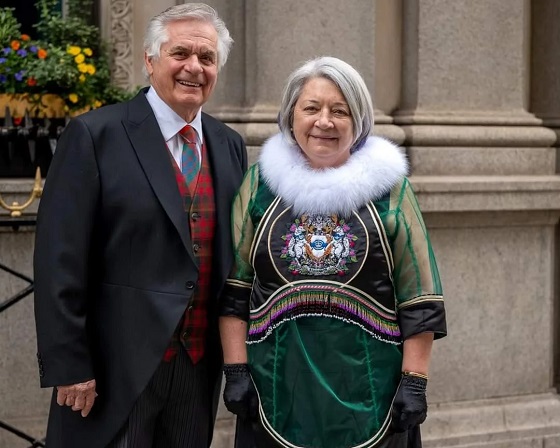
 Business2 days ago
Business2 days agoHow the feds blew your money this week
-

 Opinion2 days ago
Opinion2 days agoIt’s payback time as culture war cops switch sides, moral confusion reigns and revenge gets ready to rumble
-

 Health2 days ago
Health2 days agoNearly 200,000 Albertans left an emergency room without treatment last year, finds the MEI
-

 Business23 hours ago
Business23 hours agoCanadian gov’t spending on DEI programs exceeds $1 billion since 2016
-
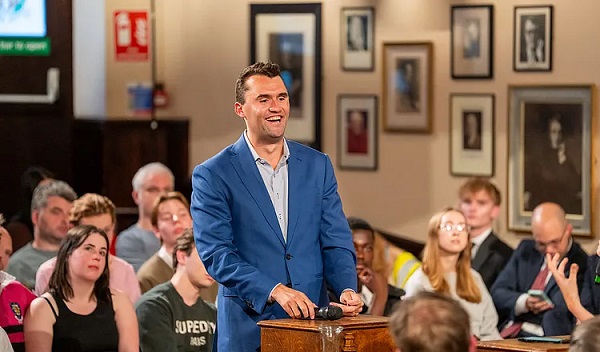
 Frontier Centre for Public Policy23 hours ago
Frontier Centre for Public Policy23 hours agoCharlie Kirk Fought A Progressive Ideology That Punishes Truth
-
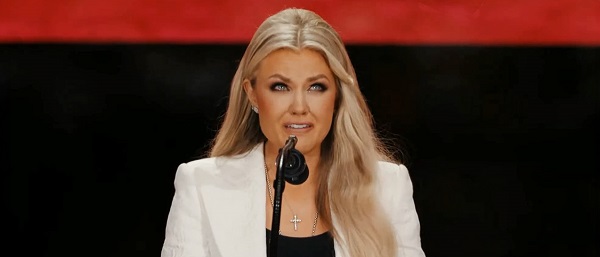
 Crime22 hours ago
Crime22 hours agoCharlie Kirk’s Widow Says She Forgives Her Husband’s Assassin During Memorial
-
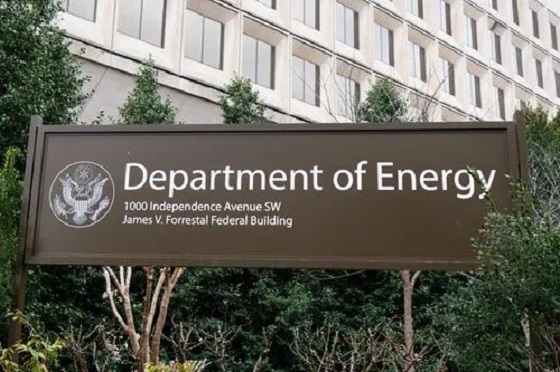
 Censorship Industrial Complex23 hours ago
Censorship Industrial Complex23 hours agoMedia’s Psyop Against Climate Scientists
-
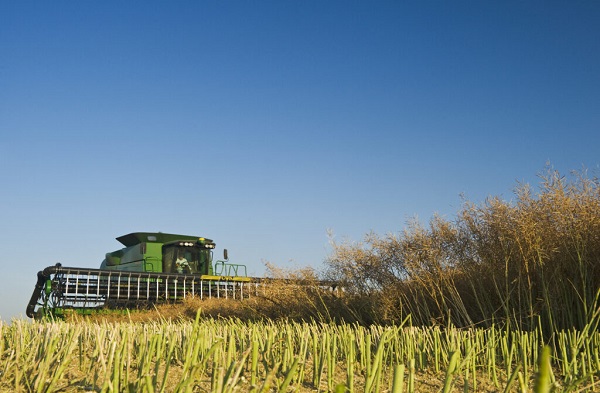
 Agriculture1 day ago
Agriculture1 day agoOttawa’s EV Gamble Just Cost Canola Farmers Billions


